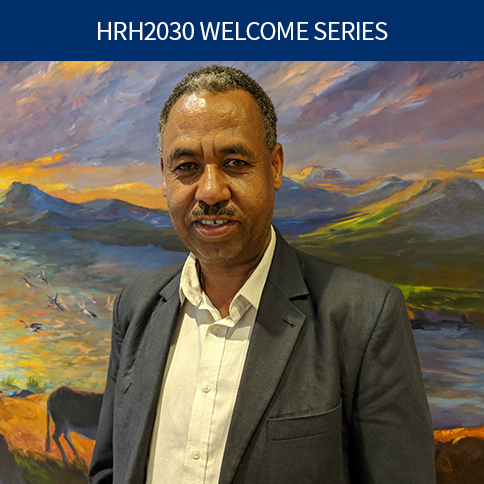
06 Feb Three Questions with Dr. Darsema Huluka: Building Ethiopia’s Response to Global Health Threats
Dr. Darsema Gulima Huluka joins HRH2030 as the multisectoral health security advisor on the One Health activity in Ethiopia. Through this activity, HRH2030 seeks to build countries in-country capacity to implement the Global Health Security Agenda. Dr. Darsema brings more than 20 years of experience in veterinary medicine, laboratory management, and stakeholder engagement to the position. Prior to joining HRH2030, Dr. Darsema worked in veterinary services, monitoring and evaluation, procurement, and project management.
- We would love to learn more about you! What inspired you to work in health?
I received my undergraduate degree from Addis Ababa University and then my MSc in tropical veterinary epidemiology at the same university. I developed a strong interest in animal welfare and the relationship between animal health, public health, and food safety, so my interests fit perfectly into One Health and the Global Health Security Agenda. I began my professional health career working at the Ministry of Agriculture, where I spent 22 years. I then worked in a regional laboratory, first as a research officer and then, after receiving my master’s, as the microbiology team leader, and eventually I became head of the laboratory. I have also served as the animal welfare focal point for the World Organization for Animal Health and then in the same capacity at the Ministry of Health.
- In your opinion, what are some of the most significant challenges health workers face in your country?
The country is striving to secure public health and to contribute to the Global Health Security Agenda. While there is the commitment and willingness, there is an issue with a lack of access to resources and technical backstopping. A lack of strong and smart governance is a big challenge in Ethiopia, along with a lack of enabling policies, legislation, and strategies in the health sector which has created a weak health system for health workers and health professionals. I think one reason for this issue is competing government priorities which leads to lack of attention to the health system, and within that, a lack of understanding of the importance of multisectoral coordination. In addition, continuing prevalence of social, economic, and environmental factors has led to high rates of infectious diseases. This combination of poor governance in the health sector combined with prevalence of infectious diseases has created a challenging environment for health workers to operate in.
- Working with HRH2030 through One Health, what do you hope to improve in your country’s health system?
Through technical and logistical support, the HRH2030 One Health activity serves to enhance the awareness of decision makers on the critical need for a multisectoral and multidisciplinary coordination and collaboration mechanism for effective prevention, early detection, and rapid response to health threats. I hope to establish a sustainable One Health coordination mechanism at all levels for multi-disciplinary and multisectoral engagement in the prevention, detection, and response to endemic, emerging, and re-emerging health threats at the human, animal, and environmental interface. To achieve this, I am working to strengthen multisectoral coordination and collaboration with local and international stakeholders for proper planning, implementation, and monitoring and evaluation of the national health security systems. To make this possible, it will be essential to ensure that there is a strong government commitment to allocate financial resources for effective ownership and resource mobilization for implementation of national health programs.
Photo: Dr. Darsema Huluka has joined HRH2030 as a multisectoral health security advisor for the One Health activity.





